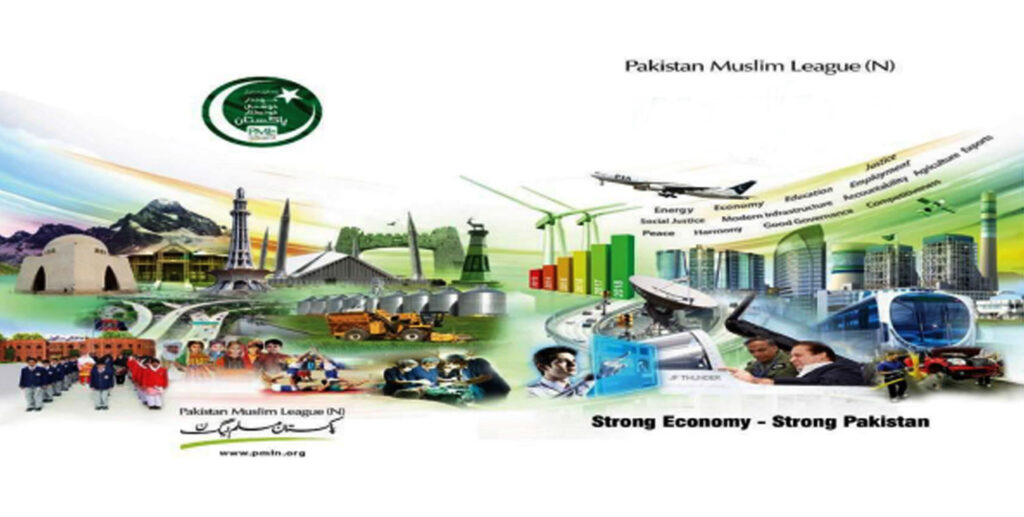Introduction
The Pakistan Muslim League-Nawaz (PML-N) has played a significant role in shaping Pakistan’s infrastructure landscape through its ambitious projects aimed at promoting economic growth and improving the quality of life for its citizens. Under the leadership of former Prime Minister Nawaz Sharif, the PML-N implemented various infrastructure initiatives that sought to address the country’s longstanding development challenges. This blog explores some of the noteworthy infrastructure projects undertaken by the PML-N and their impact on Pakistan’s progress.
China-Pakistan Economic Corridor (CPEC)
Undoubtedly the most prominent initiative undertaken by the PML-N government, the China-Pakistan Economic Corridor (CPEC) has transformed Pakistan’s infrastructure and economic prospects. This game-changing project, valued at over $60 billion, aims to connect Gwadar Port in southwestern Pakistan to China’s northwestern region of Xinjiang, through a network of highways, railways, and energy infrastructure.
The CPEC has resulted in the construction of modern transportation networks, including the Karakoram Highway and the Lahore-Multan Motorway, reducing travel time and enhancing connectivity across the country. It has also facilitated economic opportunities through the establishment of Special Economic Zones, attracting foreign direct investment and boosting industrial development. The PML-N government’s commitment to the CPEC has paved the way for Pakistan’s integration into regional trade and economic corridors, opening up new avenues for growth and prosperity.
Motorway Expansion Projects
Recognizing the significance of a robust transportation network for economic progress, the PML-N government embarked on an ambitious motorway expansion plan. One notable project was the completion of the Multan-Sukkur Motorway, which spanned over 392 kilometers, connecting central and southern regions of Pakistan. This modern highway not only reduced travel time but also contributed to increased trade and business activities.
The PML-N also initiated the construction of the Hazara Motorway, connecting the northern region of Hazara with Islamabad. This project has not only facilitated travel but also improved accessibility to scenic tourist spots, attracting both domestic and international visitors. These motorway expansion projects have enhanced connectivity within Pakistan, stimulating economic growth and fostering regional integration.
Energy Sector Reforms
Addressing Pakistan’s energy crisis was another crucial focus of the PML-N government. The energy sector reforms implemented during their tenure led to significant improvements in power generation and distribution infrastructure. The completion of several mega power projects, including the Sahiwal Coal Power Plant, Port Qasim Power Plant, and Neelum-Jhelum Hydroelectric Power Plant, added thousands of megawatts to the national grid, reducing electricity shortages and load shedding.
These initiatives not only improved the availability of electricity but also attracted investment in the industrial sector, resulting in job creation and increased productivity. The PML-N’s emphasis on energy sector reforms helped alleviate the energy crisis and provided a strong foundation for sustainable economic growth.
Metro and Mass Transit Systems
To address the challenges of urban congestion and provide efficient public transportation, the PML-N government introduced metro and mass transit systems in major cities. The Lahore Metro Bus System, inaugurated in 2013, revolutionized public transportation in the city by providing a fast, comfortable, and affordable means of commuting. It significantly reduced travel time, easing the burden on roads and improving air quality.
Inspired by the success of the Lahore Metro, the PML-N government also launched the Orange Line Metro Train in Lahore, which became the country’s first metro train project. Furthermore, the Peshawar Bus Rapid Transit (BRT) project was initiated to enhance public transportation infrastructure in the provincial capital of Khyber Pakhtunkhwa. These projects aimed to provide modern transportation facilities, reduce traffic congestion, and improve the quality of life for urban residents.
Conclusion
The PML-N’s infrastructure projects have played a crucial role in transforming Pakistan’s development landscape. From the game-changing China-Pakistan Economic Corridor to the expansion of motorway networks, energy sector reforms, and the introduction of metro and mass transit systems, these initiatives have laid the foundation for economic growth, improved connectivity, and enhanced living standards for the people of Pakistan. While political debates may surround these projects, their positive impact on the country’s progress cannot be denied. It is essential for successive governments to continue building upon these achievements and implement further infrastructure projects to drive Pakistan’s sustainable development.

